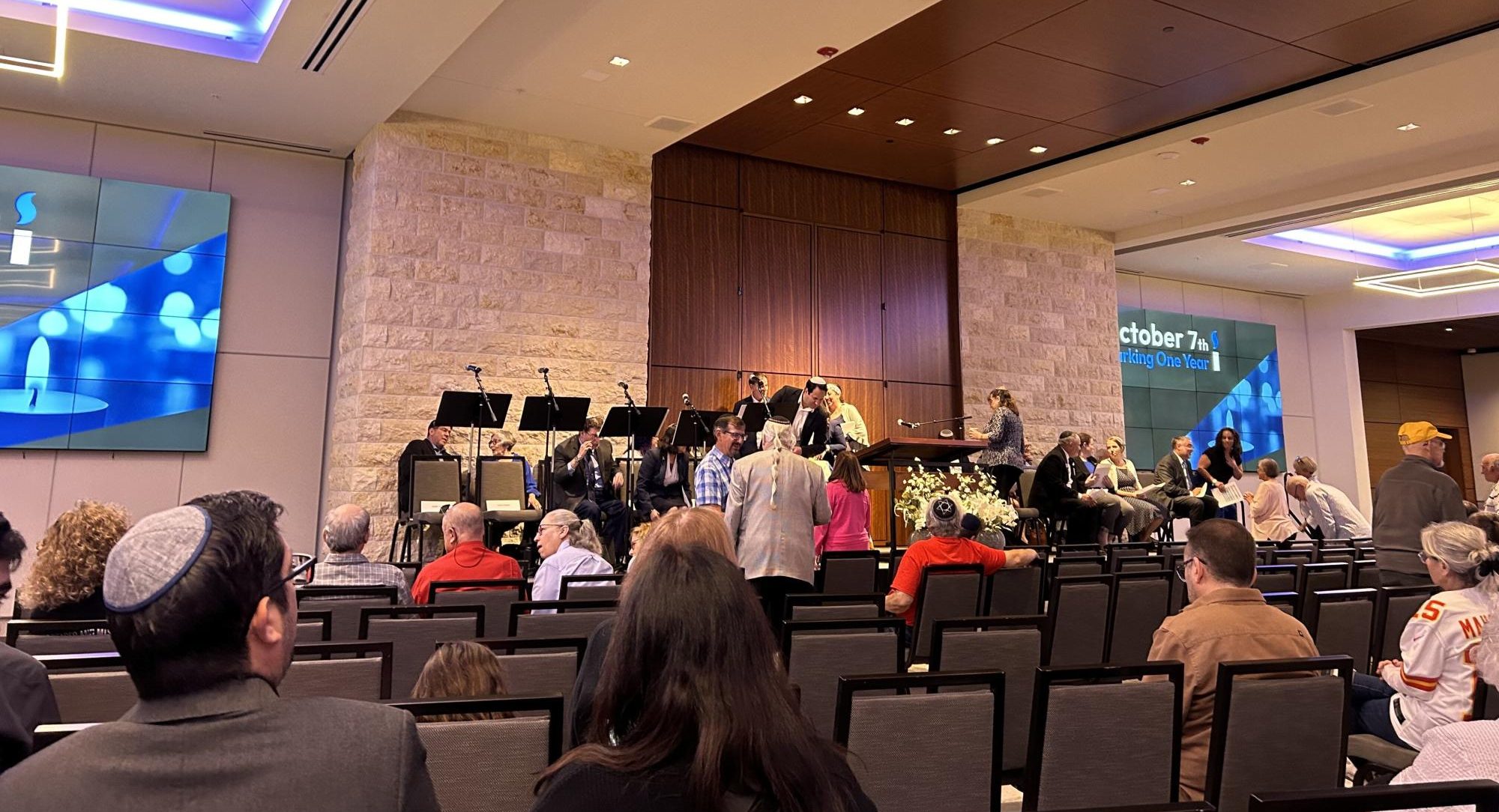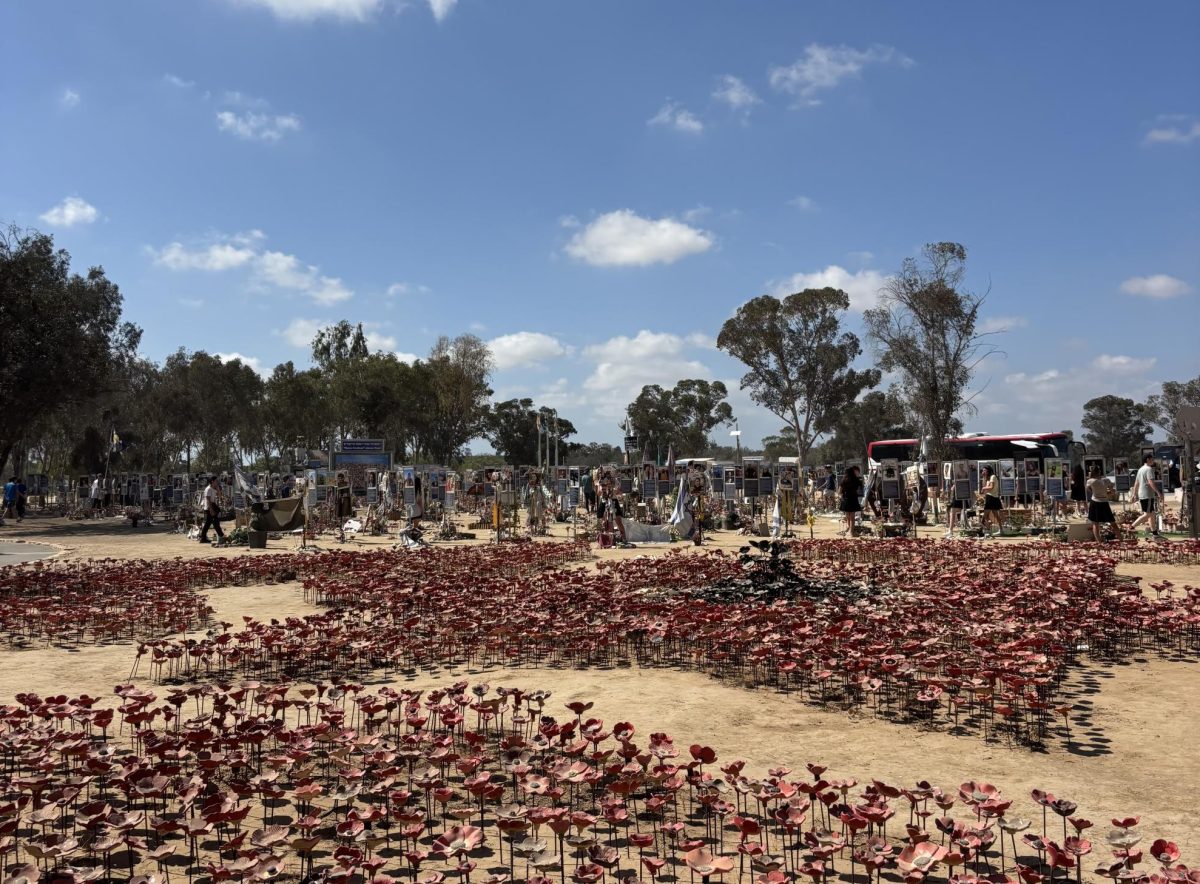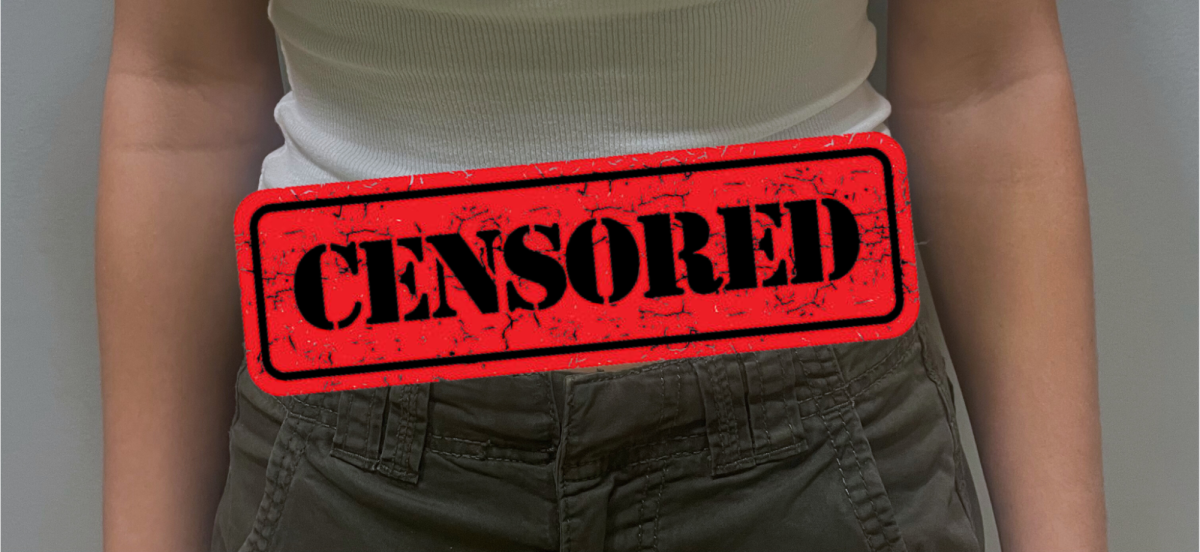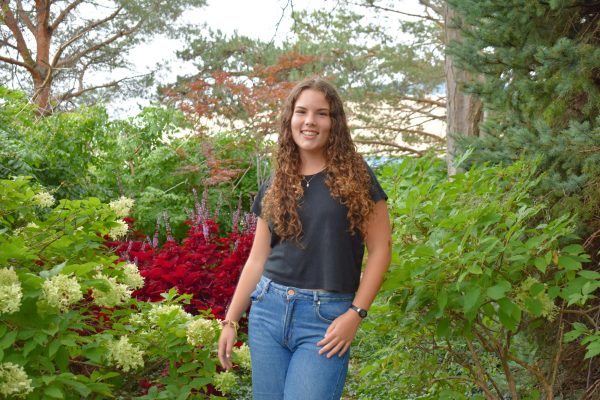Over the past year, in reaction to Oct. 7, 2023 and the ongoing war, music has been a beacon of hope guiding people through this darkness. As a Jew living in the diaspora, I feel most connected to the people around me when I am singing with them. This is especially true for Jewish songs or prayers.
Over a month ago, we marked the 365th day since Oct. 7th, 2023, and one year on the Gregorian calendar. The Overland Park Jewish community was well prepared when commemorating this hard day by participating in a memorial service hosted by B’nai Jehudah on Oct. 7.
The goal of this event was to bring the community together, and for that, I applaud the organizers for bringing people together. However, there were parts of the service that left me feeling more lonely than I did going into the event. I felt this especially when the service leaders shared certain prayers, psalms, or songs without including the community to sing with them, letting us all grieve together.
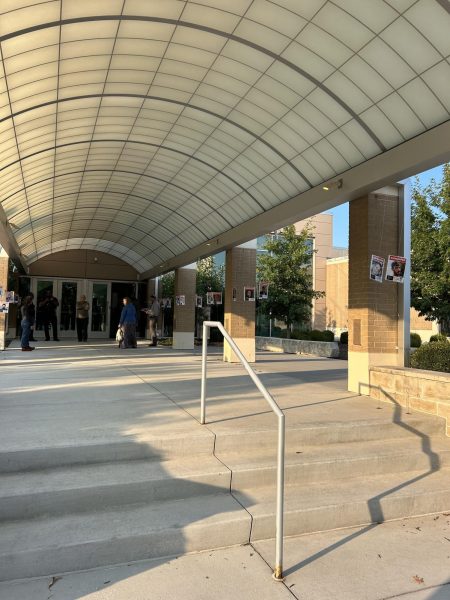
To me, singing together would have been an extremely moving experience. Throughout this past year, there have been many instances where Jews all over the world have found spaces to sing or pray together. One notable example of this was the global Shema said on March 21, 2024. Those who could not be at the Western Wall found communities for themselves in order to do this communal prayer for the return of the hostages and the safety of the Israeli soldiers (Jewish Press).
Nearing the end of this community service, Achainu was sung. When I saw the words projected onto the screens, a little part of me was given comfort because of this familiar song I had sung at camp all summer long. At camp, we all had our arms wrapped around one another, our voices joining together. When I think of how Achainu might be sung, or just the prayer in general, this is what I imagine – the sense of togetherness I was waiting for.
That supportive feeling is the complete opposite of what I felt at the community-wide October 7th memorial service.
The words of Achainu can be found in prayer when putting the Torah away on the weekday. Their origins date back to the 11th century, and they were written by one of Rashi’s students. The commonly used tune was later composed by Abie Rotenberg in the 1980s. The Acheinu prayer asks for the redemption of “our whole family,” describing “those who are in distress or captivity and asking for the redemption of the oppressed to happen, “now, swiftly, and soon.”
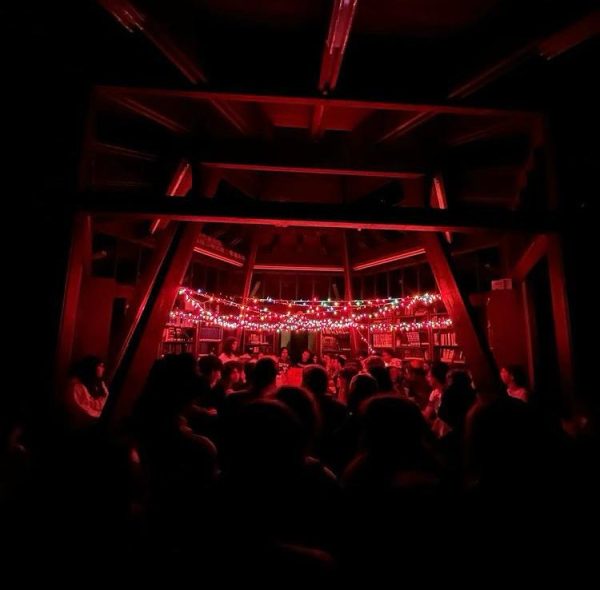
I was caught off guard when it was sung as a solo. I felt that due to the translation, meaning, and feelings it is meant to cultivate, it should not be sung like that.
Although this may have been an artistic choice, and possibly meaningful for some, I felt as though the words almost lost their meaning. How are we, as a community, supposed to pray for our brothers and sisters in captivity, if we are only outsiders to the prayer?
Prayer is very meaningful to me because of how personal it is. At the same time, singing prayers out loud like Friday night services makes me feel so connected to those around me when we are all singing together. This is why I feel our prayers are stronger sung together not only in hopes of response but also in the comfort that we may receive from being supported by those around us.
Although the missed opportunity of singing Acheinu was disappointing, I want to ask if in this next coming year, we can work together to sing and grow closer as a people and community through song, and as a whole.

